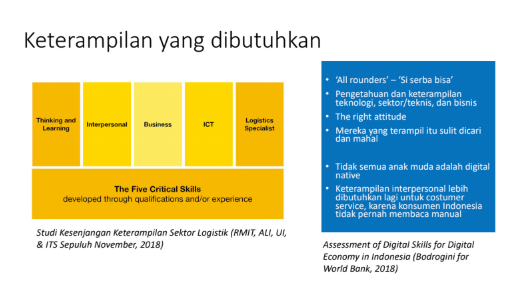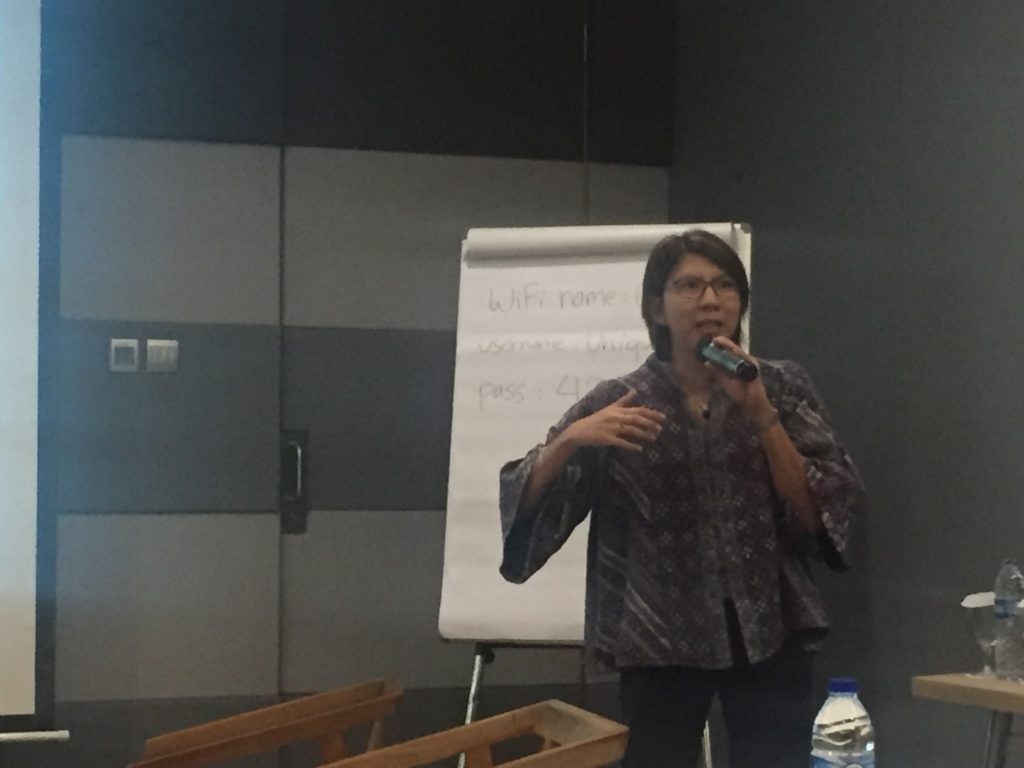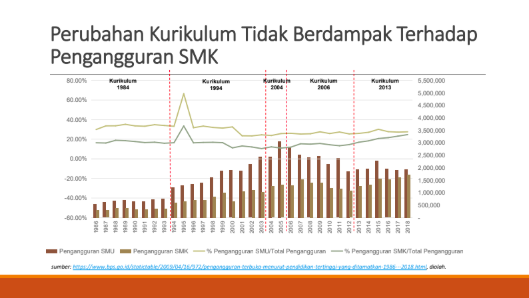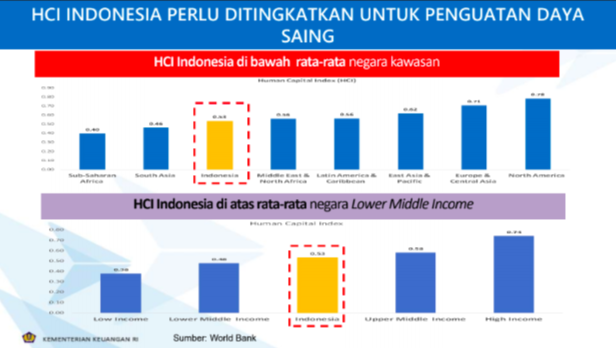The quality of human resources is said to be the main focus of the Indonesian government in the next 5 years. However, the quality of education, especially vocational education has remained unresolved despite past attempts of revitalization. Regarding this issue, Article 33 Indonesia hosted an FKP event on Thursday, 26 September 2019. Thepanel of speakers were Lukman Hakim (Article 33 Indonesia), Petra Wiyakti Bodrogini (The World Bank), and Joko Tri Haryanto(Fiscal Policy Agency, Ministry of Finance Republic of Indonesia).
Lukman Hakim began the panel with a study on the relevance of vocational schools to the labor market. Using a qualitative approach, Lukman analyzed the issues of Indonesia’s vocational schools from both the supply and demand sides. From the supply side, centralization is a problem that creates a gap between private and public vocational schools. The attempt to revitalize vocational schools in recent years only focused on public schools, thus widening the already existing gap. Past revisions in the curriculum also did not improve the unemployment rates of vocational school graduates. Moreover, the number of productive teachers is adequate, but they are not evenly distributed and incompetent. From the demand side, vocational school graduates compete with university graduates for similar industries. Additionally, only a small percentage of vocational school graduates are entrepreneurs.
Using a quantitative approach, Lukman also conducted econometric tests to compare the employability of vocational and high school graduates. He found that high school graduates are more likely to be employed. However, when the quality of education is taken into account, there is no significant difference between the employability of high school and vocational school graduates.
 Next, Petra Wiyakti Bodrogini discussed the importance of skills development in Indonesia’s education system. Technological advances have disrupted the way industries work. Nowadays, work expands beyond the borders of countries. New industries and occupations also emerge. As a response, Petra stated 5 critical skills that would be needed, namely thinking and learning, and interpersonal, business, ICT, and logistics skills. To make sure that vocational school graduates are relevant to the demands of industries, Petra believed that the government needs to give room for innovations through policies that allow agility, collaboration, and optimal use of technology.
Next, Petra Wiyakti Bodrogini discussed the importance of skills development in Indonesia’s education system. Technological advances have disrupted the way industries work. Nowadays, work expands beyond the borders of countries. New industries and occupations also emerge. As a response, Petra stated 5 critical skills that would be needed, namely thinking and learning, and interpersonal, business, ICT, and logistics skills. To make sure that vocational school graduates are relevant to the demands of industries, Petra believed that the government needs to give room for innovations through policies that allow agility, collaboration, and optimal use of technology.
Aside from revitalizing the system of vocational schools, the government should also improve the system of job trainings. There also needs to be a shift to the perception that education is a lifelong process that requires students to have the right attitude to constantly upskill and reskill themselves. With cheaper and more accessible technology, Petra believes that this is the right momentum to create policies in favor of improving human resources and revitalizing vocational education.
Finally, Joko Tri Haryanto gave insights to the use of the Human Capital Index (HCI) as a benchmark of the quality of human resources in Indonesia. Indonesia’s HCI is lower than the average score of other countries in the region. This score puts Indonesia just above the average of lower middle-income countries, but below upper middle-income countries. Out of the 3 indicators (survival, school, and health), Indonesia falls short in terms of health, especially in the number of children not stunted. To improve these indicators, the government has committed by providing assistance in the form of Kartu Indonesia Pintar (KIP), Kartu Sembako, and also the development of supporting infrastructure, among many others.
For the complete presentation and Q&A session, please refer to the video and materials provided.







